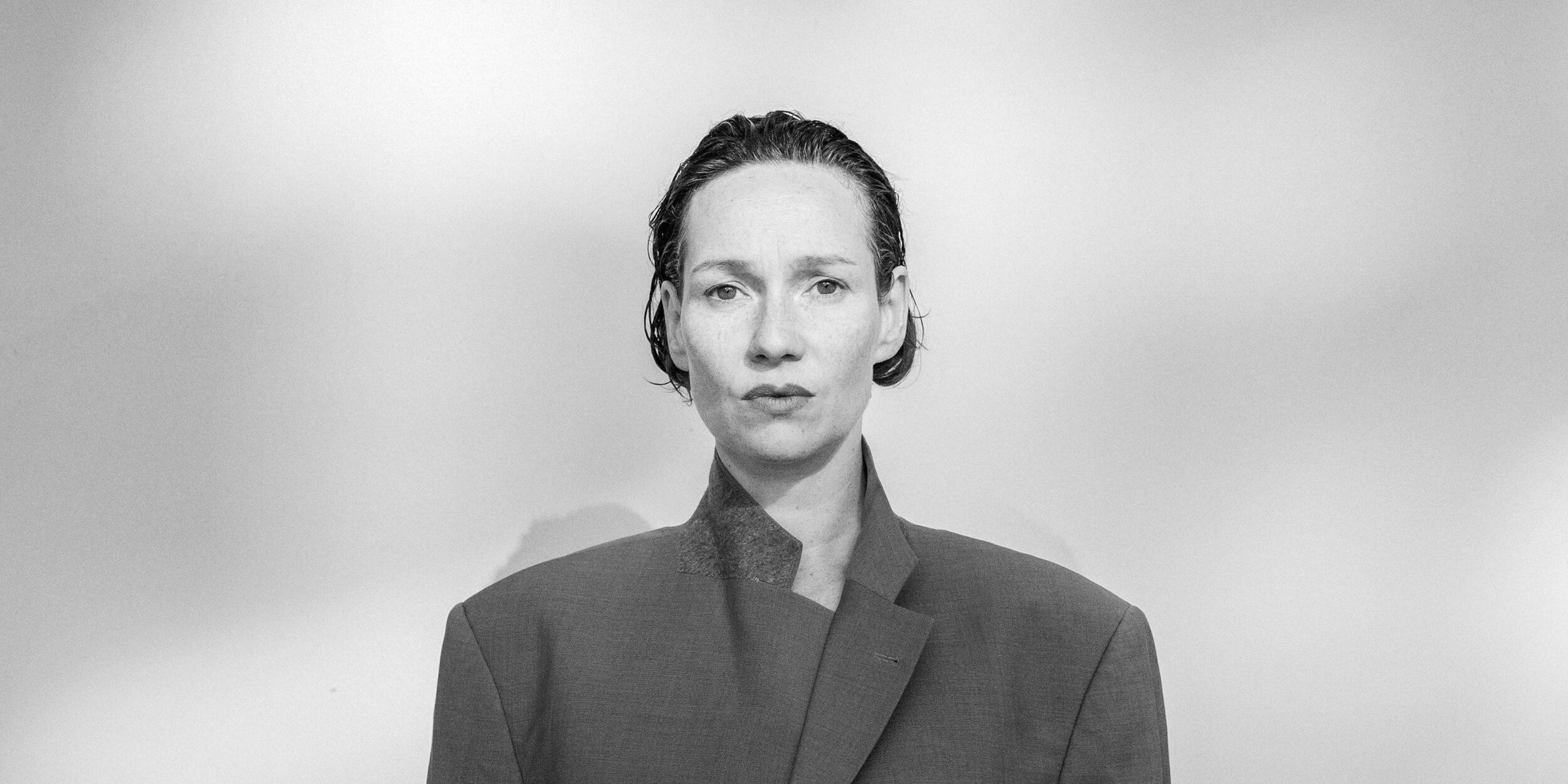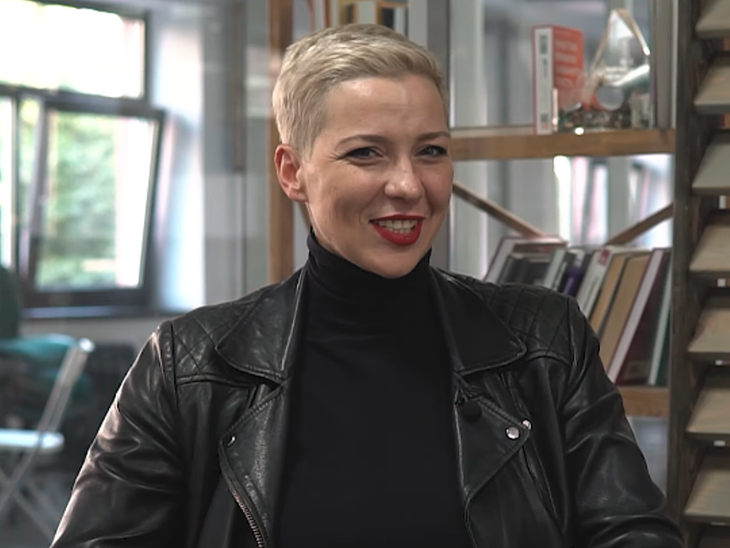What was your career path like? Was it planned in a straight line or was it rather unpredictable?
I started at the Applied Theatre Studies department in Giessen. They did a project at my school that was very performative. I thought: ‘Yes, that's theatre!’ We then did three projects together and I was invited to Giessen - where Marina Abramović also happened to be. I knew immediately that this was the right path for me. My parents are from Romania, I'm German-Romanian and theatre didn't play a role for us. I secretly applied to drama schools and ended up in Berlin, where I was quite shocked when I found out how classical and conservative it was there. Before I started, I had been to the theatre maybe twice. It was impressive, but not my thing. I knew early on that I wanted to work a lot with my body. Over the years, I kept doing my own projects, monologues or small performances in bars. It was often absurd, but it was an important part of my path. In the last four to five years, I moved into performance art and dance, but I was never fixated on a classical career. At drama school, there was the typical career path: first an engagement at a smaller theatre, then at a larger one. We used to say: ‘It's no big deal if you don't get into the big theatre now - but in five years’ time you should be ready!’ After five years, I thought to myself: ‘Hey, mate, I'm somewhere!’
I was always looking for something lively, something playful. That was my path, with lots of twists and turns and detours. I've been through every form of theatre, whether as a guest or in a permanent engagement. I often deliberately preferred to work as a guest because it meant I could also do other projects on the side.
So was it more important to you to enjoy the journey itself than to pursue a fixed goal?
Every career path is different, especially in art. It can be that the breakthrough comes immediately, or that everything develops more by chance. I was in the theatre a lot right from the start, watched a lot of plays and talked to people about what I liked. That's how I kept coming across projects and roles. I believe that if you have the right view of things, not much can go wrong. My interest has always been more in the ensembles and less in the career itself. I feel more comfortable in this environment.
Are there any recurring themes or motifs in your work?
Yes, definitely. The body plays a central role in my work. I'm interested in how the ‘I’ is imprisoned in the body and how the body has natural boundaries that you can't cross. I've often tried to push these boundaries, and I've often hurt myself in the process. I didn't used to be particularly mindful of my body, but with experience that has changed. I think that's typical of youth: you're more willing to take risks and less careful. Today I have a gentler relationship with my body (laughs). What fascinates me about the body is that you can express so much with it without needing much. It's an art form that has been around for thousands of years, and yet it's still exciting because both the body and the times we live in are changing. The body is a mirror of reality, and it shows this reality most honestly on stage. That's why I think the work at the university is so great, learning to deal with your own body in this way, it's just fun.
You've been working at the Thomas Bernhard Institute since September: What expectations did you have going into your work as a professor at the Mozarteum?
I don't have any fixed expectations, I just let things happen to me. Of course, I bring my experience to the table, but I want to remain open to what comes out of the collaboration with the students. It's important to me that the stage is always about people. I am fascinated when real humanity becomes tangible. In my opinion, this genuineness and authenticity is the core of a powerful stage presence, and I want to encourage that. For me, it's a success when the students are fully engaged - with body, mind and emotion. It can be really intense, and that's what makes theatre so magical. I also find it exciting how smaller, modern projects are so well received in some cities. I am delighted when we feel this vibrancy at the Mozarteum - when the audience doesn't just come because something is ‘cool’ or ‘hip’, but because it really moves them. Theatre that appeals to all age groups and triggers something in people - that's my goal.
You have so many roles: musician, actress, dancer, professor. Is there anything else you would like to learn?
Recently, I became a mother. This, of course, has changed many things, but it has also opened up new perspectives. During a hearing, I came across a Polish performance artist who works extensively with the theme of motherhood. I can well imagine creating a monologue or a solo piece on this subject. There are so many stories about being a mother and working as an artist. I’m 39 now, an age where having a child is completely normal. Still, it changes everything – it’s beautiful, but also challenging, especially when you’re an artist in the public eye.
During a dance workshop at the Impulstanz Festival, my baby was with me, and the reactions were positive. Many found it unusual, but it was important to show that you can do completely normal things even with a baby. I think that’s something we need to make more visible.
You once said you’d like to play David Hasselhoff in a “Knight Rider” remake. Is that still true?
Absolutely! I still want to do it. These kinds of roles simply aren’t written for me. In theatre, I’ve always found my creative expression, but in the film industry, I never made it big because I didn’t know where I belonged early on. A German, female version of Knight Rider – that would be something! I hope that someday the opportunity arises to be part of such a cool film. But so far, it just hasn’t happened yet.
What will be the first thing you direct at the Mozarteum?
Next summer, I’ll be directing a production of Jedermann, and I’m already immersed in preparations. I’m incredibly excited because it’s a play I’ve always wanted to direct. Initially, it was just a funny idea, but the students embraced it immediately, and now it’s becoming a reality. Of course, it will still have a sense of humour. We’ll be performing it in the former Cineplexx at Salzburg Main Station, and I’m curious to see how it all turns out. Jedermann is such a classic and fits perfectly in Salzburg. I can’t wait to get started on this production!
- - -
What fascinates you about your work?
The joy.
What can theatre do that other things can't?
I associate theatre with Snow White, but I don't know why.
What are you happy about?
Actually totally banal: When someone else is happy, I'm happy too.
What annoys you?
Racism, ignorance and narrow-minded thinking annoy me. A lot of things. Everything that is restrictive, actually. You stay in such a small, fixed point of view instead of opening up and seeing things from different perspectives. You particularly notice that with racism. It's always about pigeonholing people instead of really understanding them. That makes me really angry because it ruins so much and is so unnecessary.
What else would you like to learn?
I still want to learn handstands, I've been working on that for years. I used to want to ride a bike hands-free as a child, then I wanted to whistle on my finger, I still have to do handstands and skydiving.
What do you tell yourself when things get difficult?
I often think myself into the universe and then I become so incredibly small that many problems no longer have a place or are completely unimportant. Staying in the moment often helps, breathing, feeling the problem in your body, accepting it, then singing or dancing.
What is Salzburg for you?
Salzburg is a place full of contrasts for me. When I was a guest, I lived in Elsbethen, so it was always this cycle path that brought me closer to Salzburg. It just smells good here, the air is fresh and there's something so calming about the surroundings. At the same time, I also notice the people at the railway station, people living on the streets, alcohol, despair. I also notice the hatred towards foreigners and the money that blinds some people to solidarity and togetherness, although I think that's the only thing we need in the future. It makes me think because I wonder where it comes from and how it will continue.
What is your favourite object?
I have a glass ball with a dandelion set in it. I once bought it in a museum shop and I still wonder how they managed to plasticise this dandelion like that. So if anyone in Salzburg knows how this is done: Any useful tips are welcome!
Did Bruce Springsteen ever say yes?
He's said yes several times, but never turned up.




